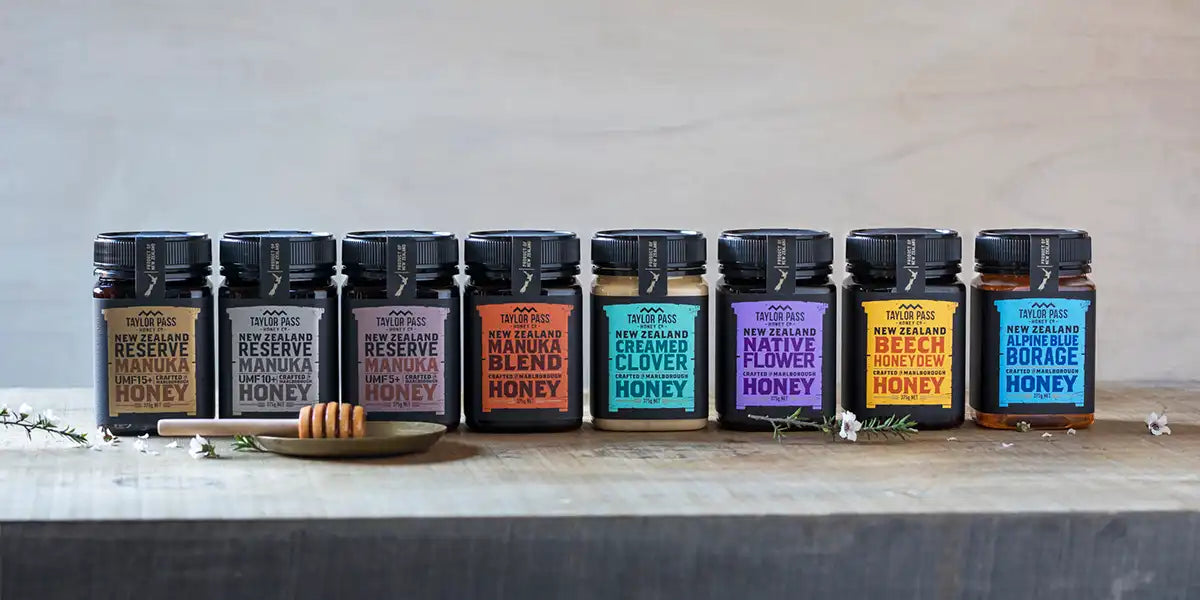Natural Sweeteners: A Guide to Healthier Sugar Alternatives
Sugar cravings hit us all, especially during that notorious mid-afternoon energy dip. While we know processed sugar isn’t doing our health any favors, the good news is there are natural sweeteners that can satisfy your sweet tooth while providing genuine nutritional benefits.
Why Choose Natural Sweeteners Over Processed Sugar?
Processed sugar from sugarcane undergoes extensive refinement that strips away virtually all nutrients, leaving behind empty calories. Organic and natural sweeteners, on the other hand, can retain many of their original vitamins, minerals, antioxidants, and bioactive compounds that can actually benefit your health.
Understanding Your Natural Sweetener Options
Honey
Produced by bees from flower nectar, honey contains enzymes, antioxidants, and trace minerals that vary depending on the floral source. Different types of honey offer unique nutritional profiles and flavor characteristics.
Health Benefits: Honey is rich in antimicrobial properties that can support immune health, and it contains antioxidants known to fight inflammation. Honey provides essential vitamins, minerals, and proteins that processed sugar lacks entirely. The high moisture content in honey makes it excellent for certain baking applications where it can help create tender, moist textures.
Some varieties of honey offer greater wellness benefits. Mānuka honey, produced by bees that gather nectar and pollen from blossoms of the mānuka bush native to New Zealand, contains higher levels of antibacterial compounds than regular honey. Mānuka honey’s unique composition makes it particularly valued for both culinary and wellness applications.
Best Uses: Honey shines in warm beverages like tea, where its soft sweetness dissolves beautifully. It works well in baking, keeping in mind that some recipes may require slight adjustments for the liquid content. Honey is also excellent topped on pancakes or waffles, drizzled over yogurt, or used in marinades.

Maple Syrup
Made from maple tree sap, pure maple syrup offers antioxidant properties and contains compounds that may cause a slower, more gradual rise in blood sugar compared to refined sugars. Its distinctive flavor makes it a favorite for both sweet and savory applications.
Best Uses: Maple syrup is a classic choice for pancakes and waffles; it also works well in baking, as a glaze for roasted vegetables, or stirred into oatmeal. Darker grades offer a more intense flavor.
Coconut Sugar
Extracted from coconut palm sap, coconut sugar has a subtle caramel-like flavor. It contains trace amounts of minerals (like potassium, iron, and zinc) and some antioxidants while maintaining a lower glycemic index.
Best Uses: Its granulated form makes coconut sugar an easy substitute in baking recipes. The caramel notes complement chocolate flavors particularly well, and it dissolves nicely in both hot and cold beverages.
Date Sugar and Syrup
Less processed than regular sugar, date-based sweeteners can retain fiber, minerals like potassium and magnesium, and antioxidants from whole dates. Date syrup offers concentrated sweetness, while date sugar provides texture.
Best Uses: Date syrup works well in smoothies, as a pancake topping, or in Middle Eastern-inspired dishes. Date sugar can replace brown sugar in many baking recipes.
Stevia
This plant-based extract is hundreds of times sweeter than sugar, with virtually zero calories. It doesn’t impact blood sugar levels, making it popular for weight management and diabetes control.
Best Uses: Stevia works well in beverages where you can control the amount precisely. Some people prefer it combined with other natural sweeteners to balance any potential aftertaste.
Agave Nectar
Extracted from the agave plant, this syrup is sweeter than sugar and has a low glycemic index due to its high fructose content. While this means it won’t spike blood sugar as quickly, the high fructose content means moderation is particularly important.
Best Uses: Its liquid form and neutral flavor make agave suitable for beverages and light desserts where you don’t want to alter the flavor profile significantly.
Fruit Purees
Blending ripe fruits like apples, pears, or bananas creates natural sweeteners that add fiber, nutrients, and moisture to recipes. Different fruits bring their own flavors and nutritional profiles.
Best Uses: Fruit purees work well in muffins, quick breads, and as toppings for yogurt or oatmeal. Applesauce is particularly versatile for baking substitutions.
Understanding the Nutritional Differences
While natural sweeteners generally contain more beneficial compounds than processed sugar, they may still contribute calories and should be used thoughtfully. The healthiest approach involves choosing options that provide additional nutritional value when you do indulge.
Different natural sweeteners offer varying levels of antioxidants, minerals, and other beneficial compounds. Some, like honey, provide antimicrobial benefits, while others, like coconut sugar, are less refined than white sugar, preserving more of its natural nutrients.
Important Considerations
Remember that even natural sweeteners can contribute to your daily caloric intake and can affect blood sugar levels. The key benefits come from their additional nutritional compounds and often more complex flavors compared to processed sugar.
Quality matters when choosing natural sweeteners. Look for pure, unprocessed options that are free from added ingredients.
The Sweet Truth
Natural sweeteners provide a more nutritious approach to satisfying sweet cravings compared to processed sugar. Each type offers unique flavors, textures, and nutritional benefits, making them suitable for different applications and personal preferences.
The healthiest strategy involves using natural sweeteners mindfully as part of a balanced diet, appreciating both their enhanced nutritional value and distinct flavors.


